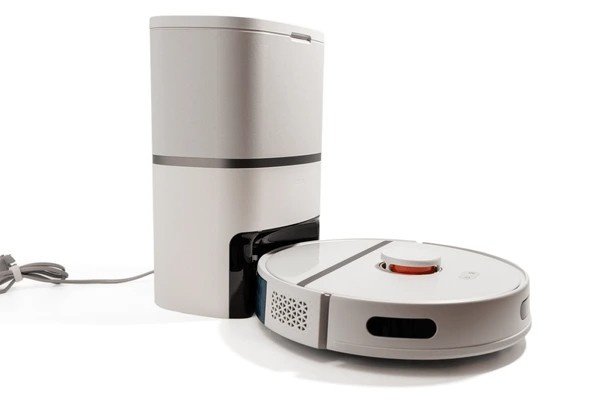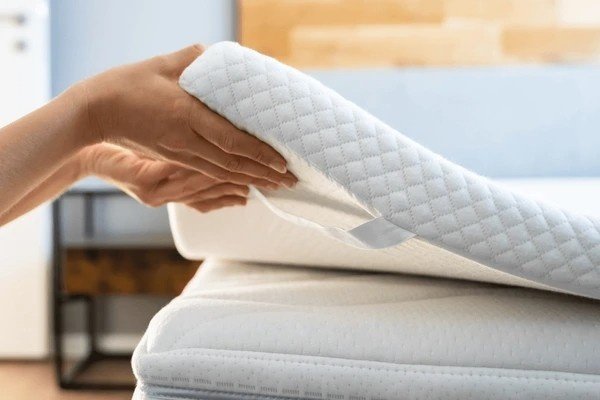When it comes to keeping our homes clean, technology has made life simpler. Robot vacuums are one such innovation. With their ability to clean floors while you attend to other tasks, these small but powerful machines have become household essentials. Choosing the right one, though, can be overwhelming. Let me walk you through the key considerations and help you decide which robot vacuum suits your home best.
Table of Contents
Why Buy a Robot Vacuum?
Before diving into the specifics, ask yourself: Why do I need a robot vacuum? For many, it’s about convenience. A robot vacuum saves time and effort. It’s especially helpful for busy professionals, parents, and people with mobility issues. Robot vacuums excel at maintaining cleanliness between deeper cleans. However, understanding your specific cleaning needs is crucial before making a decision.
Assessing Your Home’s Needs
The right robot vacuum depends on several factors unique to your living space:
1. Floor Types
- Hardwood, Tile, or Vinyl: Most robot vacuums work well on smooth surfaces, but some excel more than others. Check if the model you’re considering handles fine dust and small debris effectively.
- Carpets and Rugs: Not all robot vacuums can deep clean carpets. If you have medium or high-pile rugs, opt for one with strong suction power and a rotating brush.
2. Pet Ownership
- Pets shed fur and dander, which requires a vacuum with specialized features. Look for models with strong suction, anti-tangle brushes, and HEPA filters.
3. Size and Layout of Your Home
- Larger homes may need vacuums with longer battery life and the ability to map rooms.
- Complex layouts call for advanced navigation systems to avoid missed spots.
4. Allergies
- HEPA filters trap allergens like dust and pollen. If anyone in your home suffers from allergies, prioritize this feature.
5. Budget
- Robot vacuums come in a wide price range. Knowing your budget helps narrow your choices.
Key Features to Consider
Here’s a breakdown of the most important features to look for when buying a robot vacuum:
1. Suction Power
Suction power determines how effectively the vacuum picks up debris. Higher suction is better for carpets and homes with pets. Look for a minimum of 1500 Pa for versatile cleaning.
2. Navigation Technology
Robot vacuums use different navigation systems:
- Random Navigation: Inexpensive models often move randomly and may miss spots.
- Camera or Laser Mapping: Advanced vacuums map your home and clean methodically, ensuring better coverage.
3. Battery Life and Recharge Capability
- Homes over 1000 square feet need vacuums with at least 90 minutes of runtime.
- Many models recharge themselves and resume cleaning, a must-have for larger homes.
4. Dustbin Size
Smaller dustbins fill up quickly, which is inconvenient. If you have pets or a large house, choose a model with a larger capacity.
5. Smart Features
- Wi-Fi connectivity allows control through a smartphone app.
- Voice assistant compatibility (e.g., Alexa, Google Assistant) makes operation hands-free.
- Scheduled cleaning programs keep your floors tidy automatically.
6. Noise Levels
Some robot vacuums are quieter than others. If you work from home or have small children, check the decibel rating.
Comparing Top Robot Vacuums
To simplify your decision, here’s a comparison table of popular robot vacuums:
| Feature | Budget-Friendly Model | Mid-Range Model | Premium Model |
|---|---|---|---|
| Price Range | $150 – $300 | $300 – $600 | $600+ |
| Navigation | Random | Laser Mapping | AI-Powered Mapping |
| Suction Power (Pa) | 1000 – 1500 | 2000 – 2500 | 3000+ |
| Battery Life | 60 – 90 minutes | 90 – 120 minutes | 120+ minutes |
| Dustbin Capacity | Small (< 400 mL) | Medium (400-600 mL) | Large (> 600 mL) |
| Smart Features | Basic | Wi-Fi, App Control | Advanced (Voice, Zones) |
| Suitable For Pets | Limited | Moderate | Excellent |
My Experience Testing Robot Vacuums
Over the years, I’ve tested several robot vacuums. Here’s what I’ve learned from firsthand experience:
1. Budget-Friendly Options
If you’re on a budget, brands like Eufy and Roomba offer affordable models. These vacuums do a decent job on hard floors but struggle with carpets. Navigation tends to be random, so they’re better suited for smaller spaces.
2. Mid-Range Choices
Mid-range vacuums like Roborock S6 and iRobot Roomba 980 deliver better cleaning performance and navigation. These models strike a balance between cost and functionality. They’re ideal for medium-sized homes and pet owners.
3. Premium Picks
Premium models, such as the Roomba s9+ and Dyson 360 Heurist, are top performers. They excel in suction power, mapping, and customization. If you want a vacuum that empties itself, these models are worth the investment.
Questions to Ask Yourself
When choosing a robot vacuum, ask yourself these questions:
- How often do I need to clean? If daily cleaning is essential, choose a model with scheduling features.
- Do I have pets? Pet-friendly models are a must.
- How tech-savvy am I? Some vacuums require app setup and maintenance.
- What is my tolerance for noise? Quieter models are better for noise-sensitive households.
Common Mistakes to Avoid
- Ignoring Maintenance Costs Replacement parts, such as filters and brushes, add to the long-term cost. Check their availability and price.
- Overlooking Navigation Needs A basic model might not navigate a complex layout well. Invest in mapping technology for larger homes.
- Focusing Solely on Price While budget matters, don’t compromise on essential features. A slightly higher upfront cost can save frustration later.
Final Thoughts
Choosing the right robot vacuum is about understanding your home’s needs and your cleaning preferences. By considering factors like floor type, budget, and features, you can find a vacuum that makes your life easier. Remember, the best vacuum isn’t necessarily the most expensive one but the one that fits your home and lifestyle perfectly.





